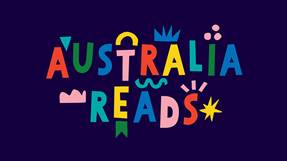 Australia Reads has released Live Literature in Australia: Understanding the Landscape of Author/Illustrator Events in Schools, Libraries and Bookstores, a joint research project between Australia Reads and the University of Melbourne investigating the ways the country's authors and illustrators connect with communities through live literature events.
Australia Reads has released Live Literature in Australia: Understanding the Landscape of Author/Illustrator Events in Schools, Libraries and Bookstores, a joint research project between Australia Reads and the University of Melbourne investigating the ways the country's authors and illustrators connect with communities through live literature events.
A not-for-profit collaboration of the Australian Library and Information Association, Australian Publishers Association, Australian Society of Authors, and BookPeople (the Australian booksellers association), Australia Reads works with members of all four organizations to promote the experience of meeting an author through talks, interviews, workshops, readings and performances in bookshops, libraries, schools, and online.
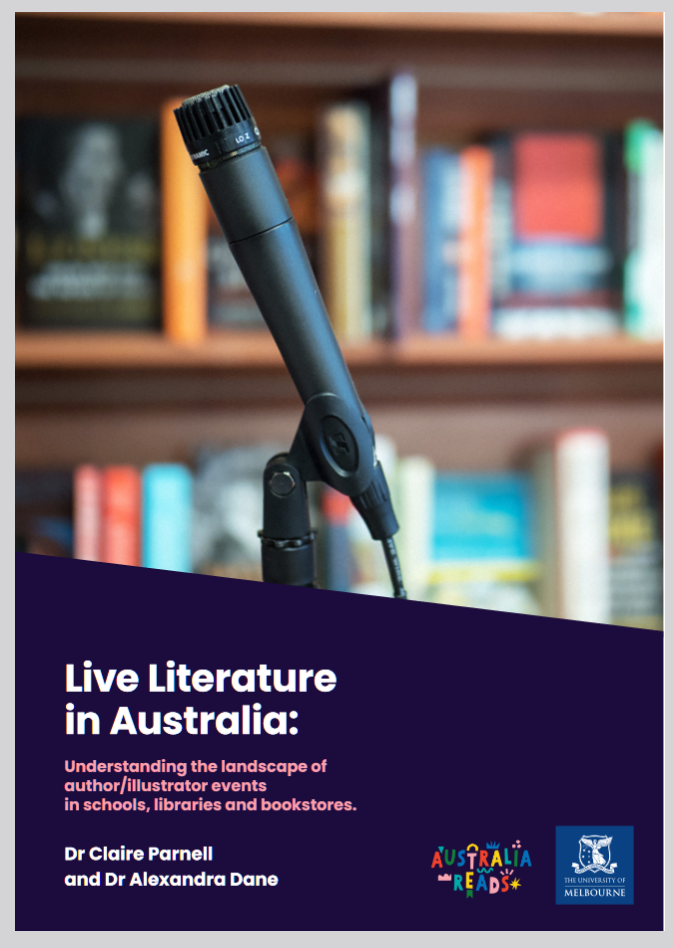 The research project surveyed and interviewed a range of event organizers to better understand the processes, considerations and barriers to hosting live literature events in Australia in settings other than major literary festivals.
The research project surveyed and interviewed a range of event organizers to better understand the processes, considerations and barriers to hosting live literature events in Australia in settings other than major literary festivals.
"Speaking with booksellers about the notion of fostering a reading culture prompted responses about the readers and book buyers in their local community," the report noted, adding that "there was a distinct sense that bookstores and booksellers act as a bridge between readers and the literary sector, making authors available to readers but also making engagement with literary culture less intimidating. The booksellers we spoke with were keen to establish a space for readers to come and discuss books and reading."
One participating bookseller said, "We try to, by every means possible, make sure that all the authors presenting, but also all of the people attending events, feel that they are as much a part of what's happening.... [And] sometimes we get a combination of more experienced authors reading alongside quite new authors so we try not to make any distinction between all of these people and just kind of give everybody kind of equal attention and equal care."
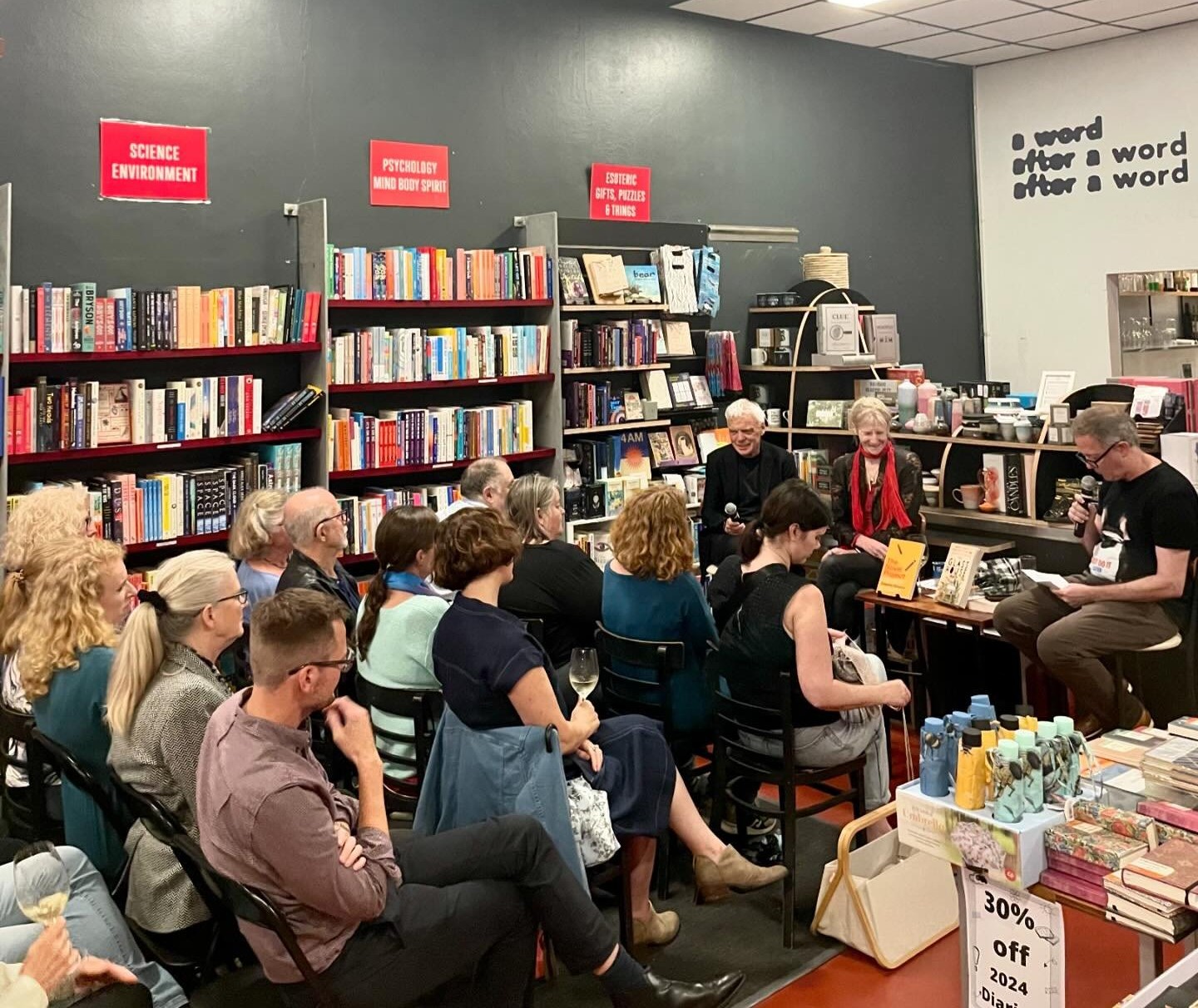 |
| The launch of The Glass House by Graeme Simsion and Anne Buist at Avid Reader, Brisbane. |
The majority of bookseller respondents in the survey reported they are most likely to contact authors directly, primarily via e-mail, if they have worked with them in the past. With authors they have not worked with in the past, 70% said they would contact the publisher in order to organize an author or illustrator event in their store, but more than 77% said that being directly approached by the author/illustrator influenced decision-making when arranging author events.
As might be expected, participating booksellers noted that they do not typically make a profit from events, particularly when labor, time and overhead costs are factored in. This is a significant factor in 93% of bookstore survey respondents saying they did not pay authors and illustrators for event appearances. When asked if they would be open to compensating writers at the Australian Society of Authors suggested rate, more than 65% of the participating booksellers said they wouldn't, with around 27% opting for "maybe."
Event hosts reported a variety of models employed to lessen the financial burden on them--like ticket prices that might include the book--though many who had not ticketed their events previously cited the desire to keep them accessible across socioeconomic groups as a reason.
One bookseller noted: "There's no non-controversial way to assess what any one particular event costs us. But it's somewhere in the space of... A$500 [about US$320] to put on an event... that's if it's in the shop where we don't have to pay for additional venue benefits. And so the overriding consideration is always [cost]."
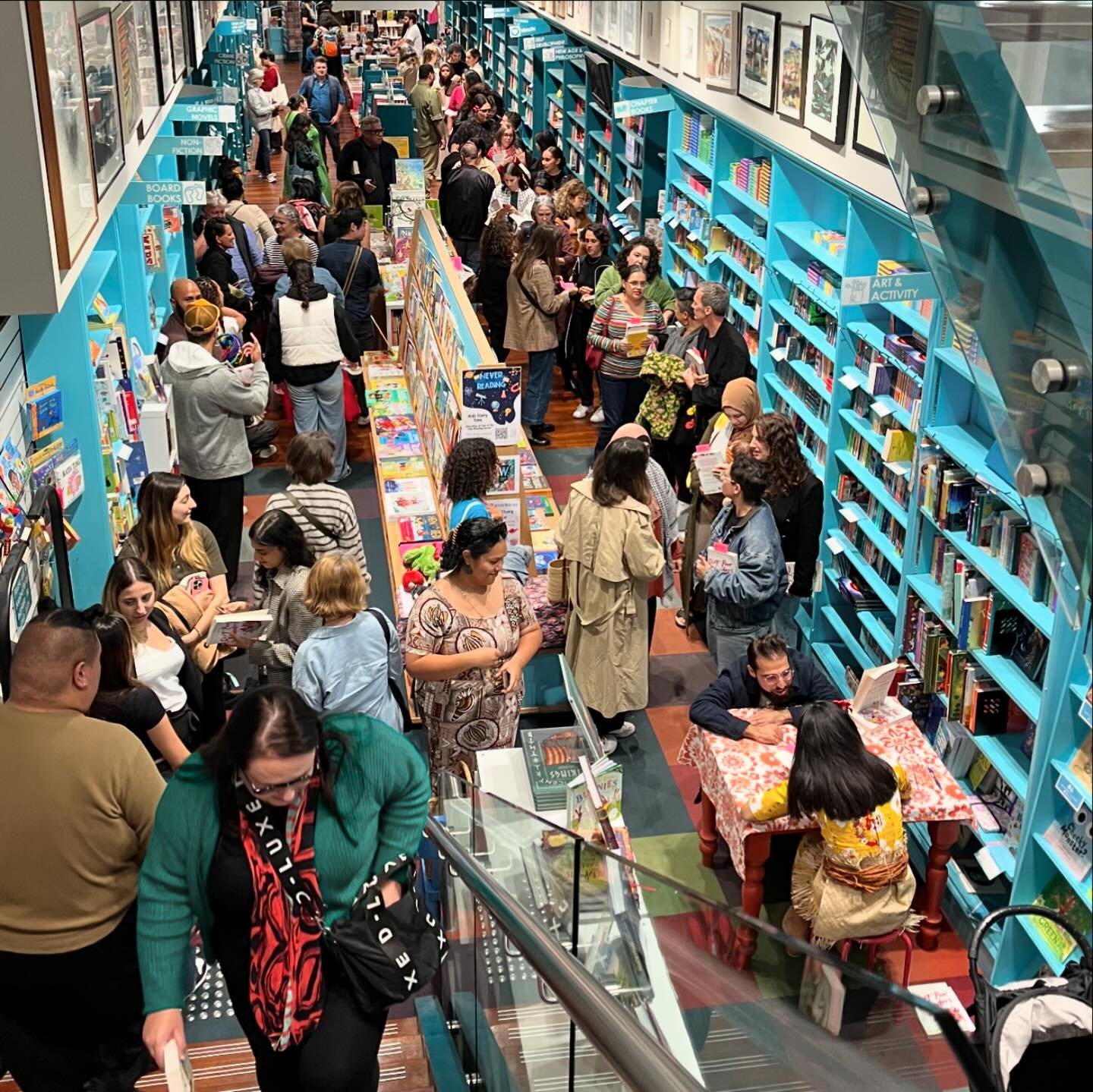 |
| Launch event for Winnie Dunn's Dirt Poor Islanders at Better Read Than Dead, Newtown. |
More than 90% of bookseller survey respondents chose engaging with customers, publicity for authors, and fostering a reading culture as the key benefits of author and illustrator events. One inner city bookseller said: "We organize them for a couple of reasons, but I think the main one is because it does create an incredible sense of community and if you choose the right events for your customers... they just love it so much and it's like when you go to a writers festival and it's really exciting to hear people talk, it's just a very different experience."
For booksellers responding to the survey, attitudes toward more inclusive programming ranged from a conscious decision to include more authors of color, to a desire to have an inclusive program of authors, without any conscious effort or strategy. The report noted "both scholarly and industry research into the pervasive and rigid whiteness of the Australian publishing sector indicates that without explicit and sustained efforts to include more authors of color in programs, the dominance of white authors in these spaces will remain."
The Live Literature in Australia report concluded with the following recommendations for the country's book industry to improve the organization of author and illustrator events:
- Develop direct relationships between authors, publishers and event hosts.
- Make it easier for event hosts to get in contact with authors.
- Create informational packages that give event hosts a clear and practical sense of what authors/illustrators can offer as part of their events.
- Bookshops, schools and public libraries should consider partnering locally and sharing resources to facilitate author visits to local council areas.
- Regional event organizers, in particular, should consider collaborating locally.
- Coordinate marketing strategies between authors, publishers, and event hosts (particularly bookstores and public libraries).
- Support regional Australia through further investment by governments, literary organizations, and publishers.
- Improve the diversity of authors and illustrators featured in live literature programs through strategic planning by event organizers, tied to measurable targets.
Australia Reads also noted that the results from the project "demonstrated that additional research into the positive impact meeting an author has on a person’s life and desire to read--as well as on author’s sales and income--would be beneficial in order to campaign for support of these events."
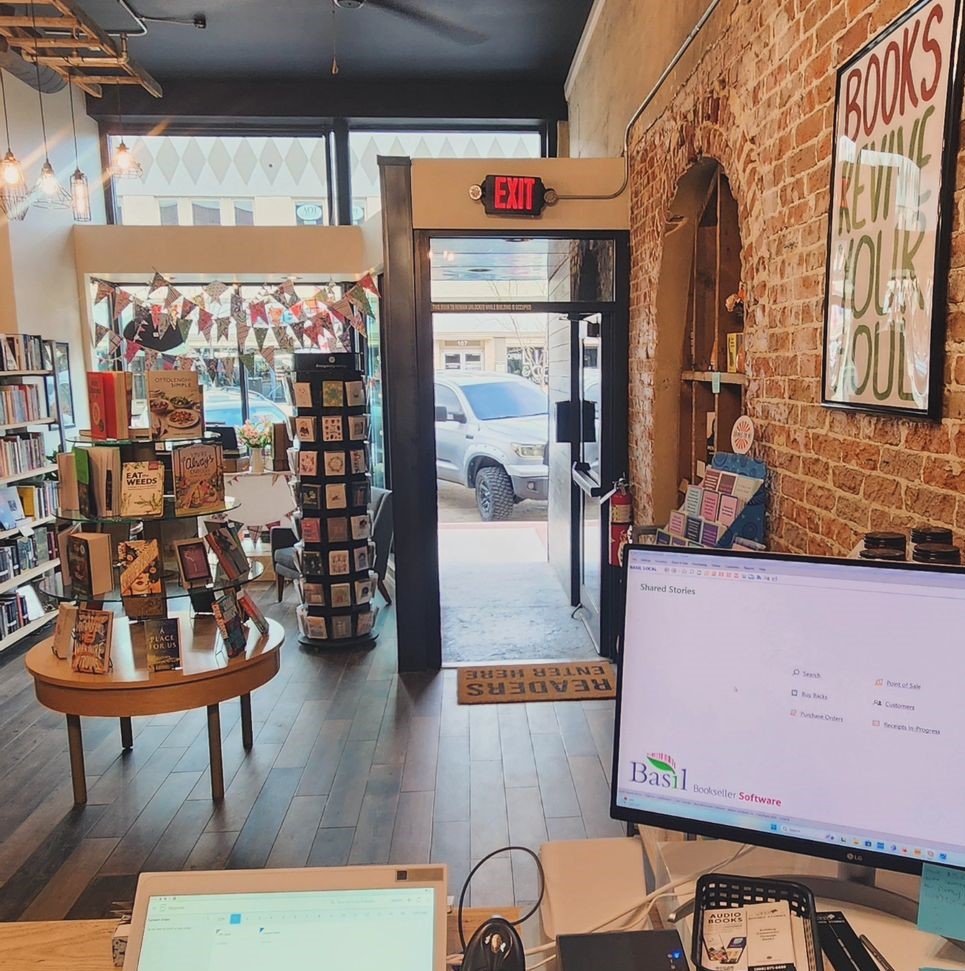 Many of the nonbook items on offer are made locally, including soaps and candles from New Plymouth. Even the shelves were made in Middleton at Brick Barn Furniture, and Skinner, "who had an idea of what she wanted the shop to smell like, sourced the scent locally as well," BoiseDev noted.
Many of the nonbook items on offer are made locally, including soaps and candles from New Plymouth. Even the shelves were made in Middleton at Brick Barn Furniture, and Skinner, "who had an idea of what she wanted the shop to smell like, sourced the scent locally as well," BoiseDev noted.











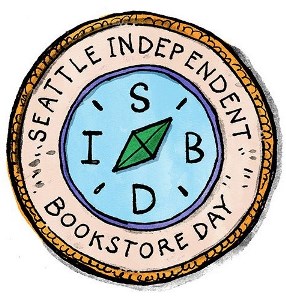 In Seattle, Wash., 28 indie bookstores are taking part in the
In Seattle, Wash., 28 indie bookstores are taking part in the 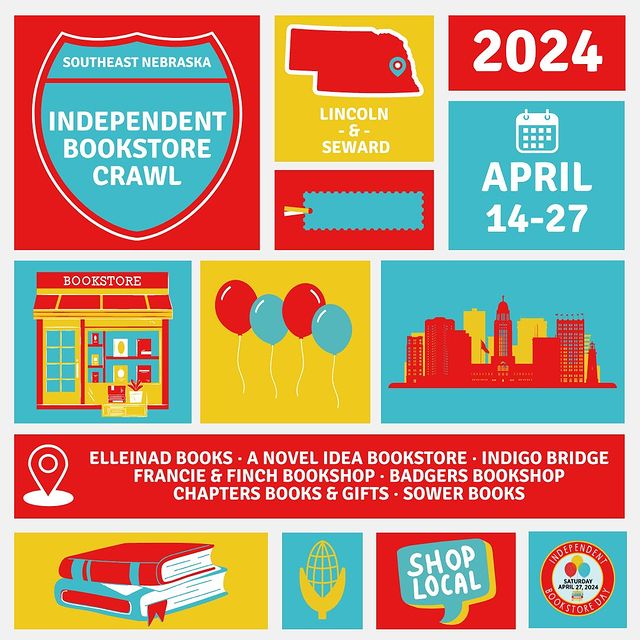 In southeast Nebraska, the second annual
In southeast Nebraska, the second annual 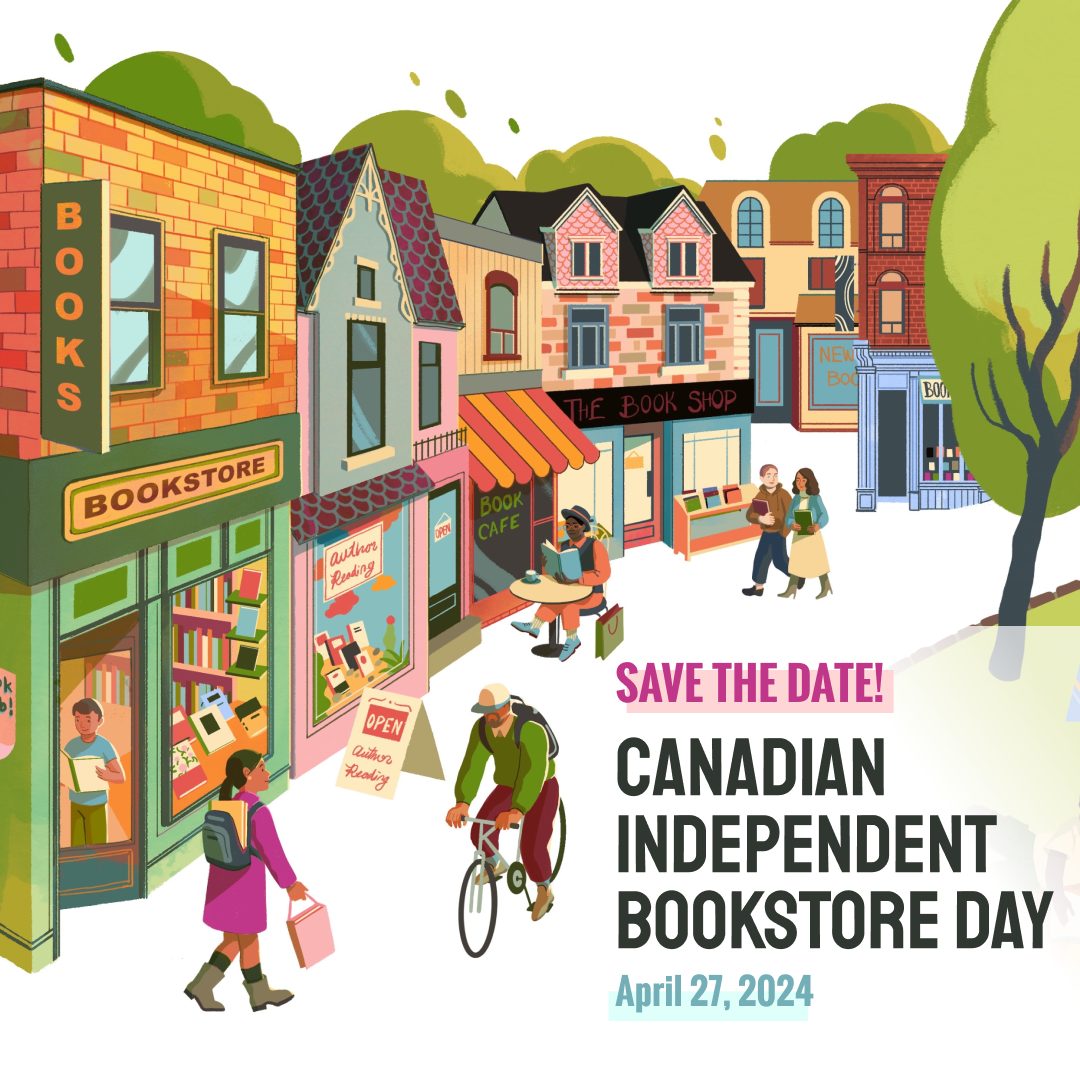 In Edmonton, Alberta, 11 indies are joining forces for the first-ever Edmonton Book Crawl. Book lovers have the weekend to visit participating stores and get their passports stamped; those who collect every stamp will be entered to win a "Fantastic Hamper of Bookish Goodies," filled with
In Edmonton, Alberta, 11 indies are joining forces for the first-ever Edmonton Book Crawl. Book lovers have the weekend to visit participating stores and get their passports stamped; those who collect every stamp will be entered to win a "Fantastic Hamper of Bookish Goodies," filled with
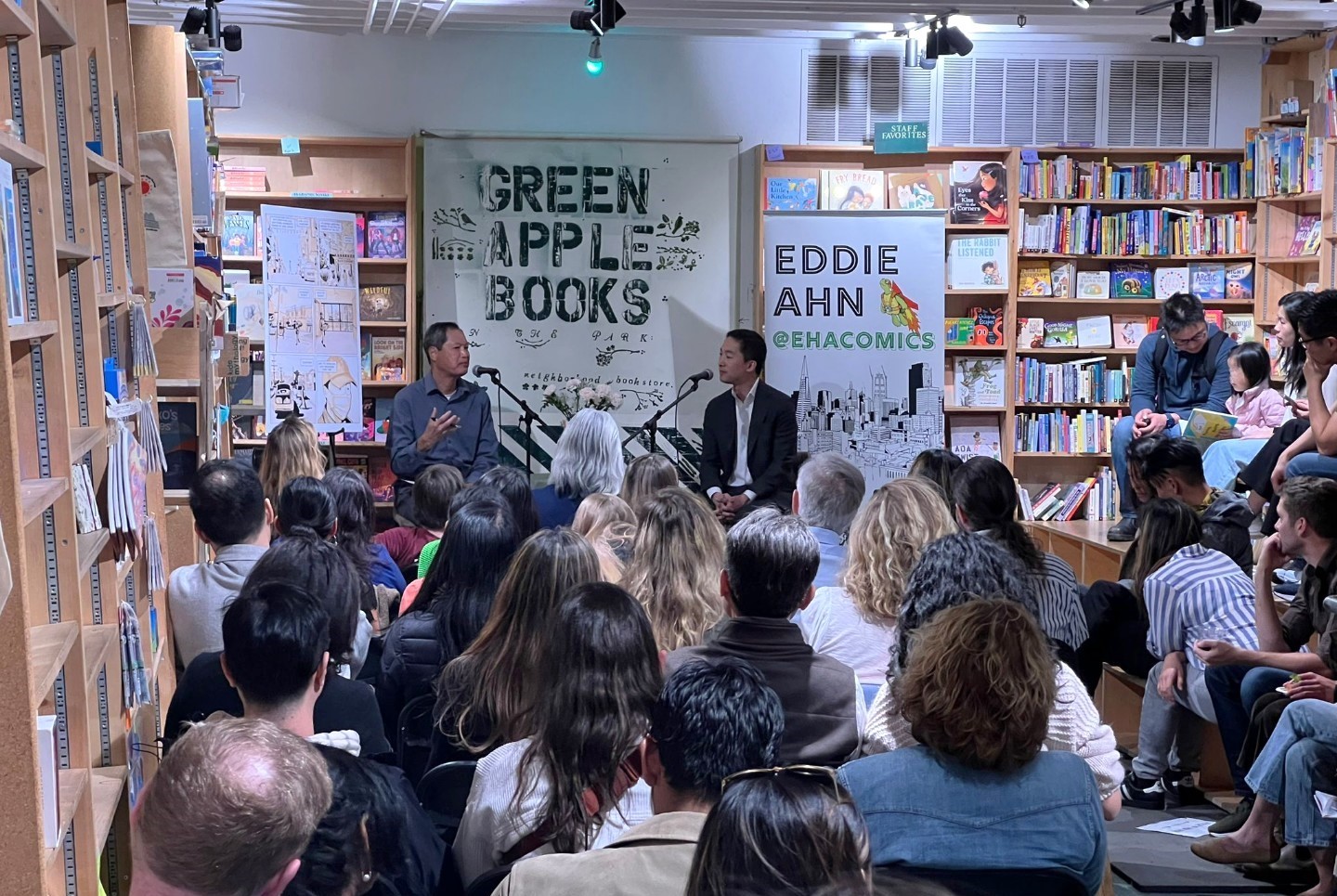
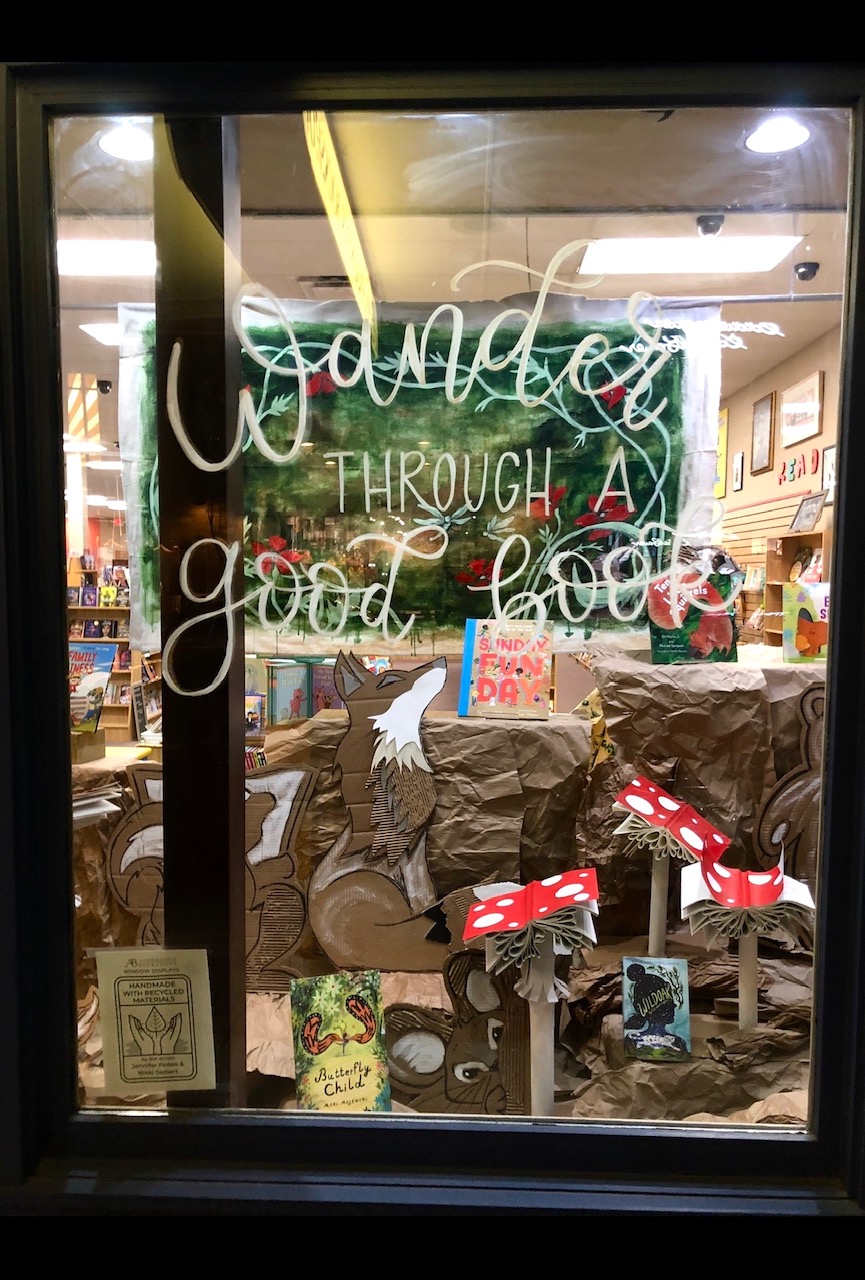 Anderson's Bookshops
Anderson's Bookshops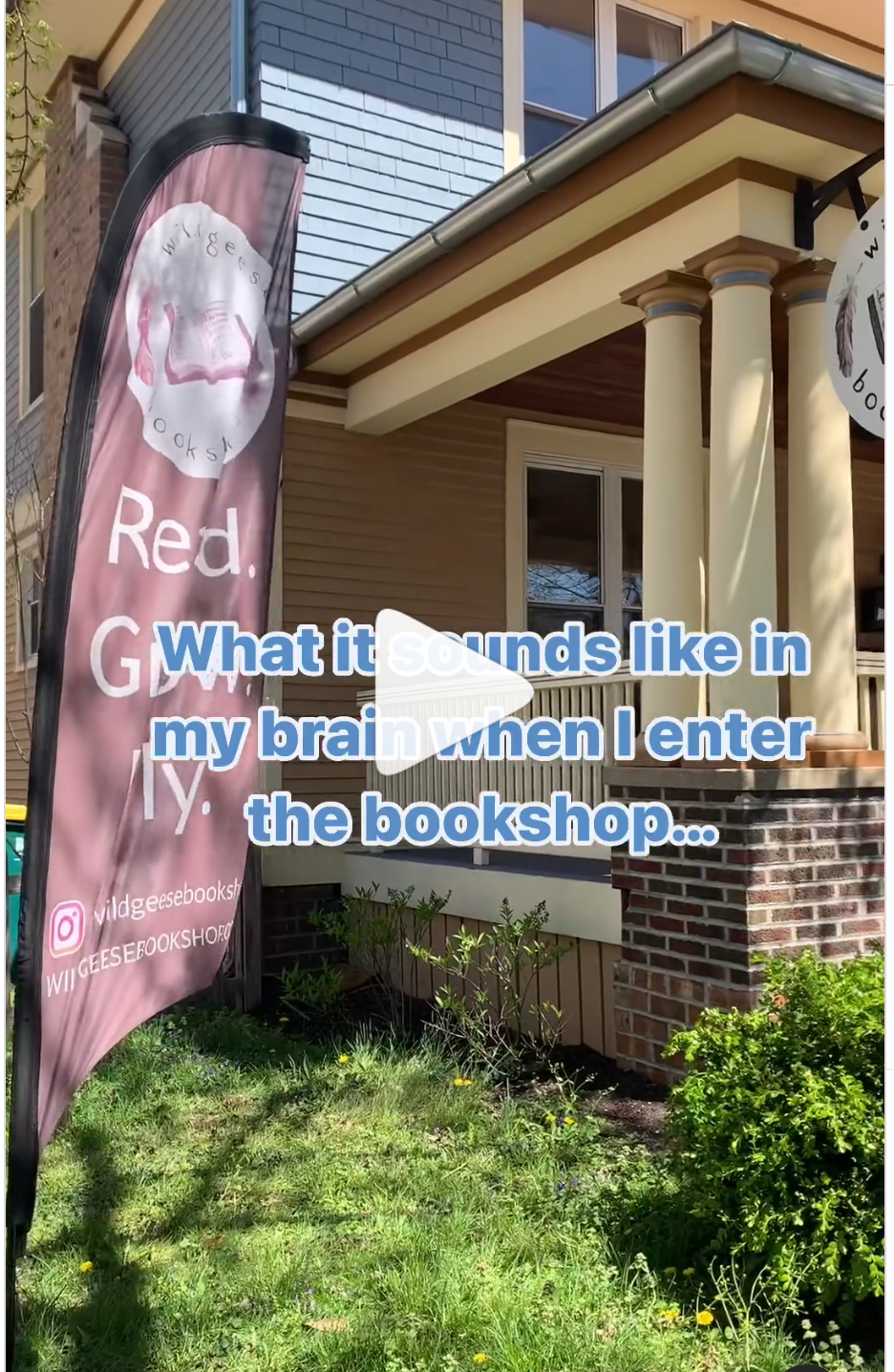
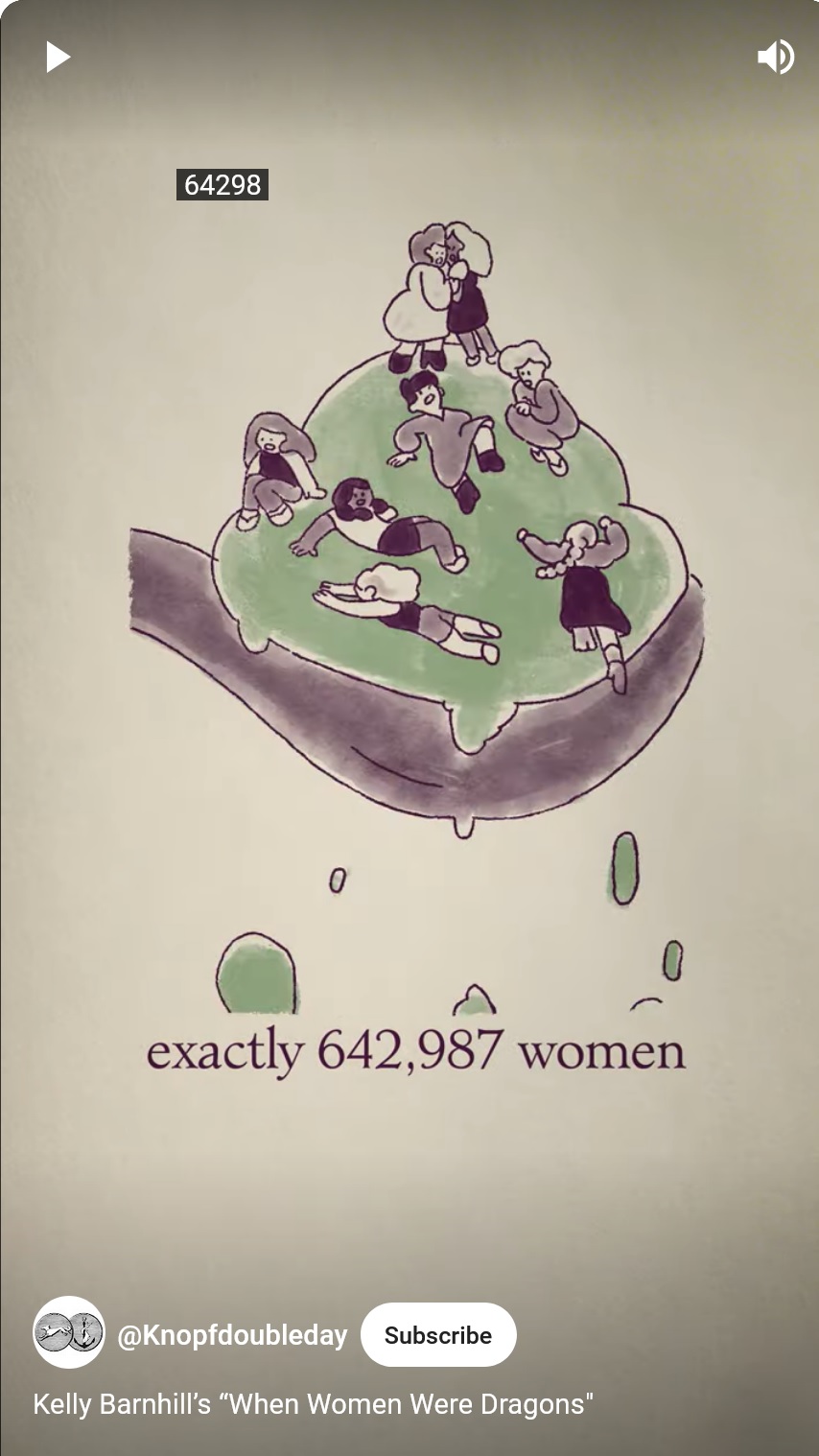 When Women Were Dragons: A Novel
When Women Were Dragons: A Novel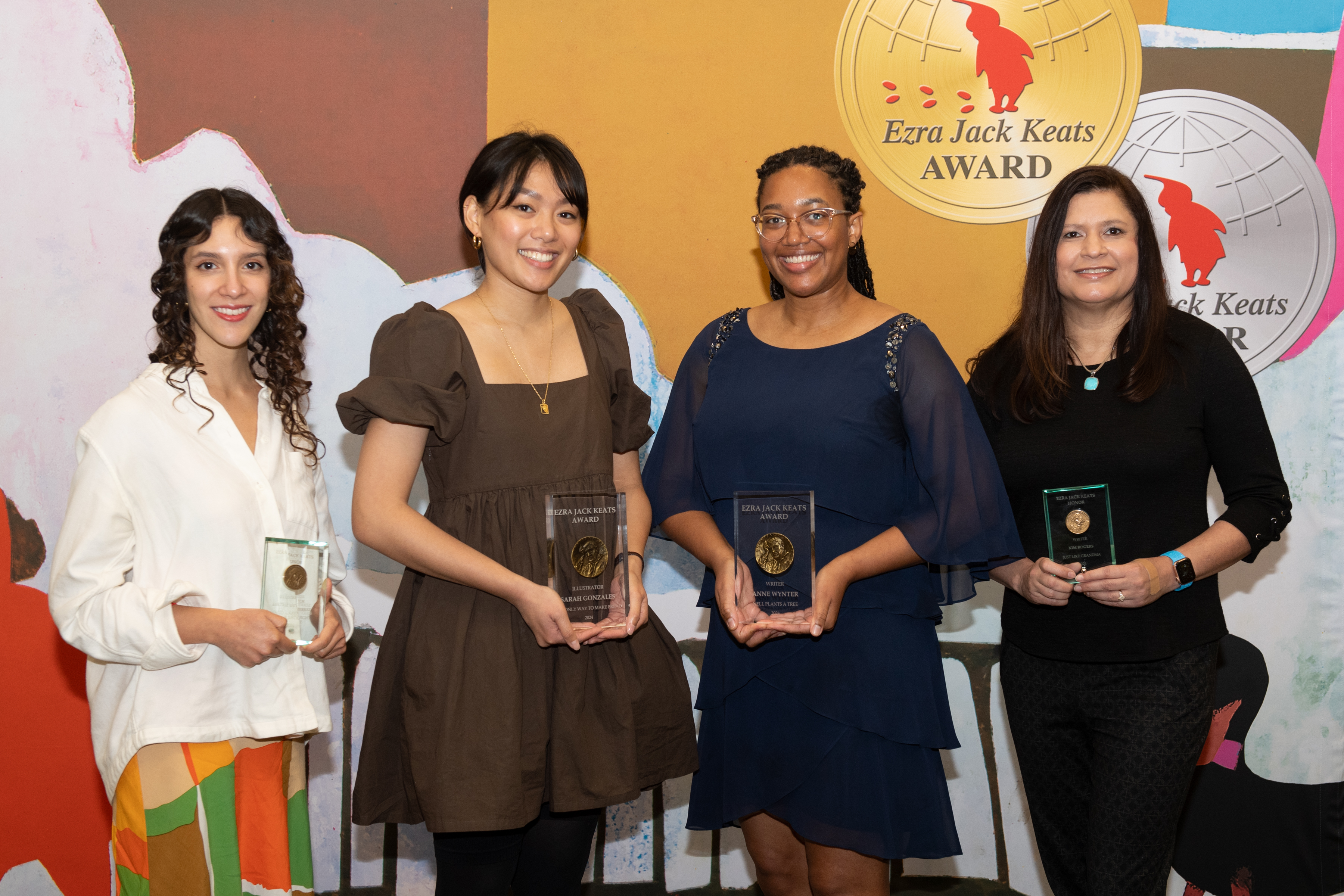
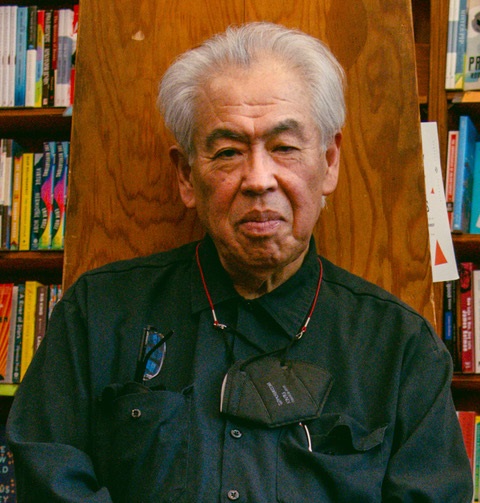
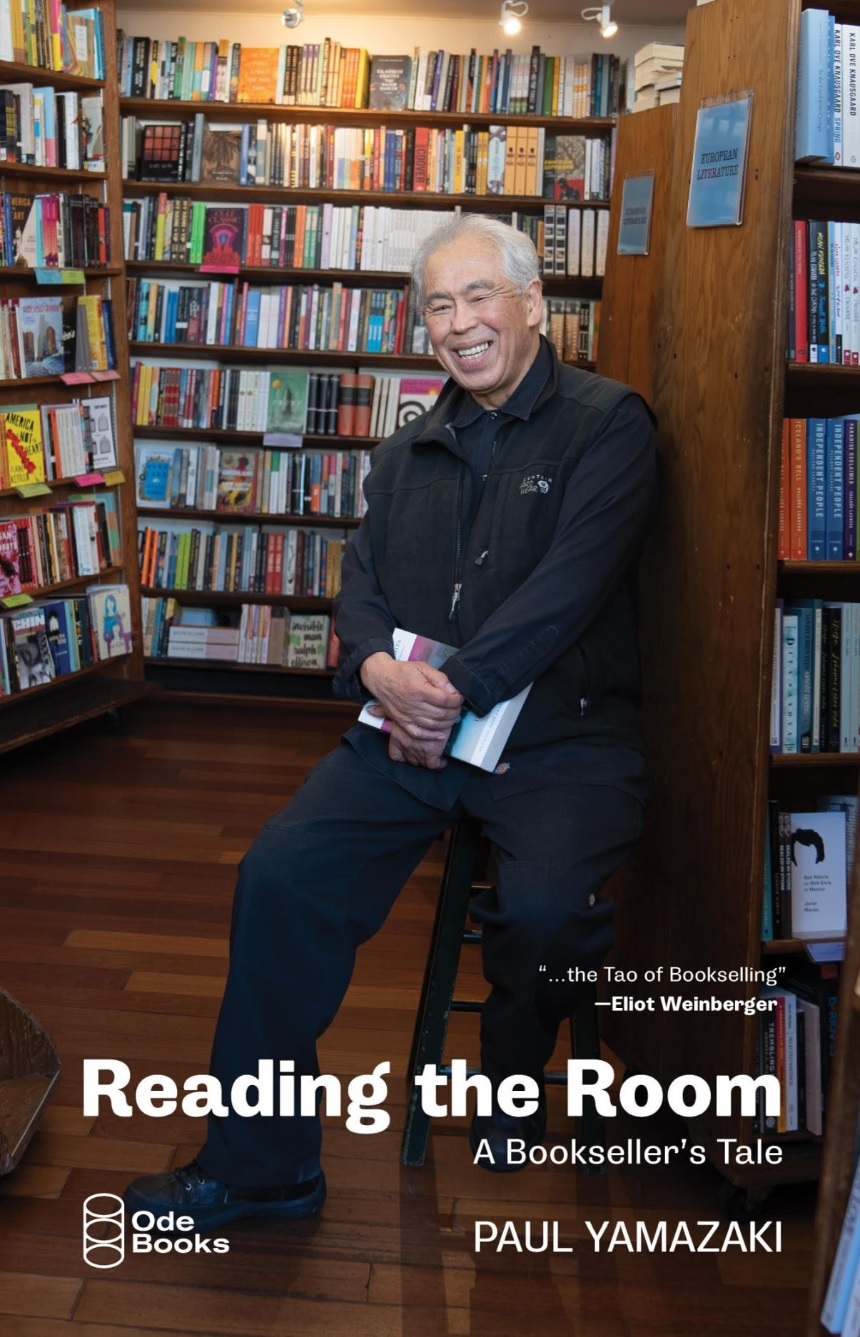 Books that you're an evangelist for:
Books that you're an evangelist for: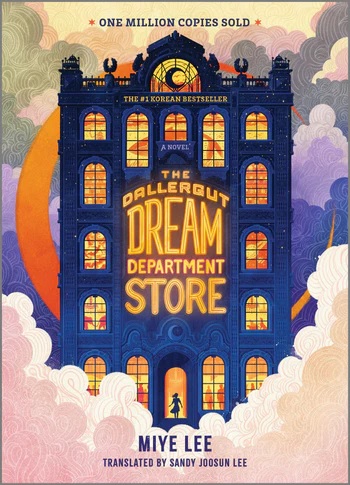 With The Dallergut Dream Department Store, Miye Lee explores the nature and power of dreams, the possibilities created by choosing them, and human nature itself. Whimsical and sweet, this debut novel translated from Korean by Sandy Joosun Lee will leave any reader musing and looking forward to a good night's rest.
With The Dallergut Dream Department Store, Miye Lee explores the nature and power of dreams, the possibilities created by choosing them, and human nature itself. Whimsical and sweet, this debut novel translated from Korean by Sandy Joosun Lee will leave any reader musing and looking forward to a good night's rest.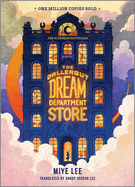

 The research project surveyed and interviewed a range of event organizers to better understand the processes, considerations and barriers to hosting live literature events in Australia in settings other than major literary festivals.
The research project surveyed and interviewed a range of event organizers to better understand the processes, considerations and barriers to hosting live literature events in Australia in settings other than major literary festivals. 
